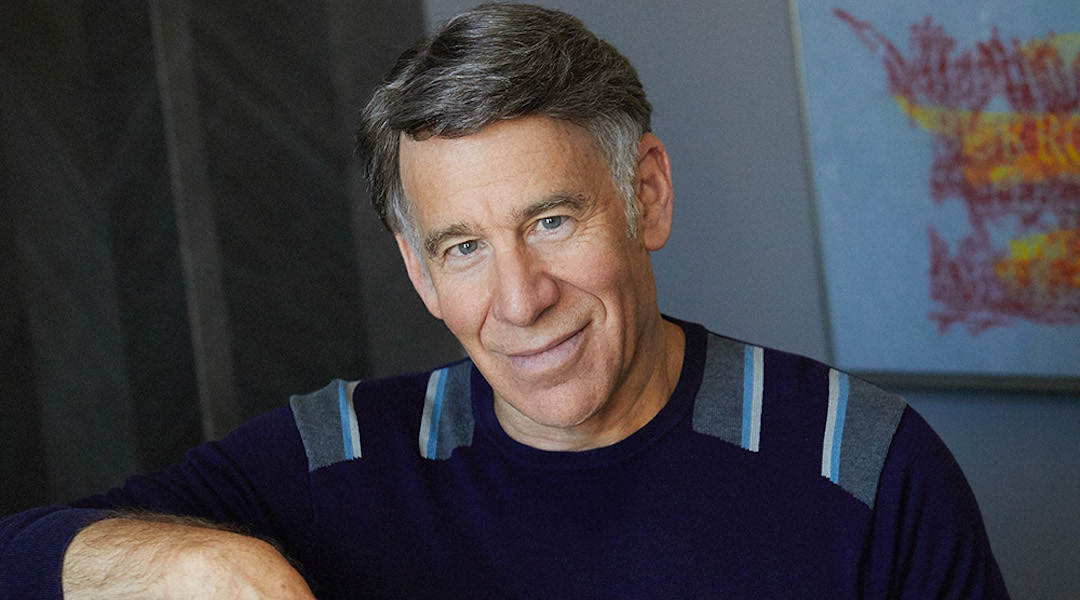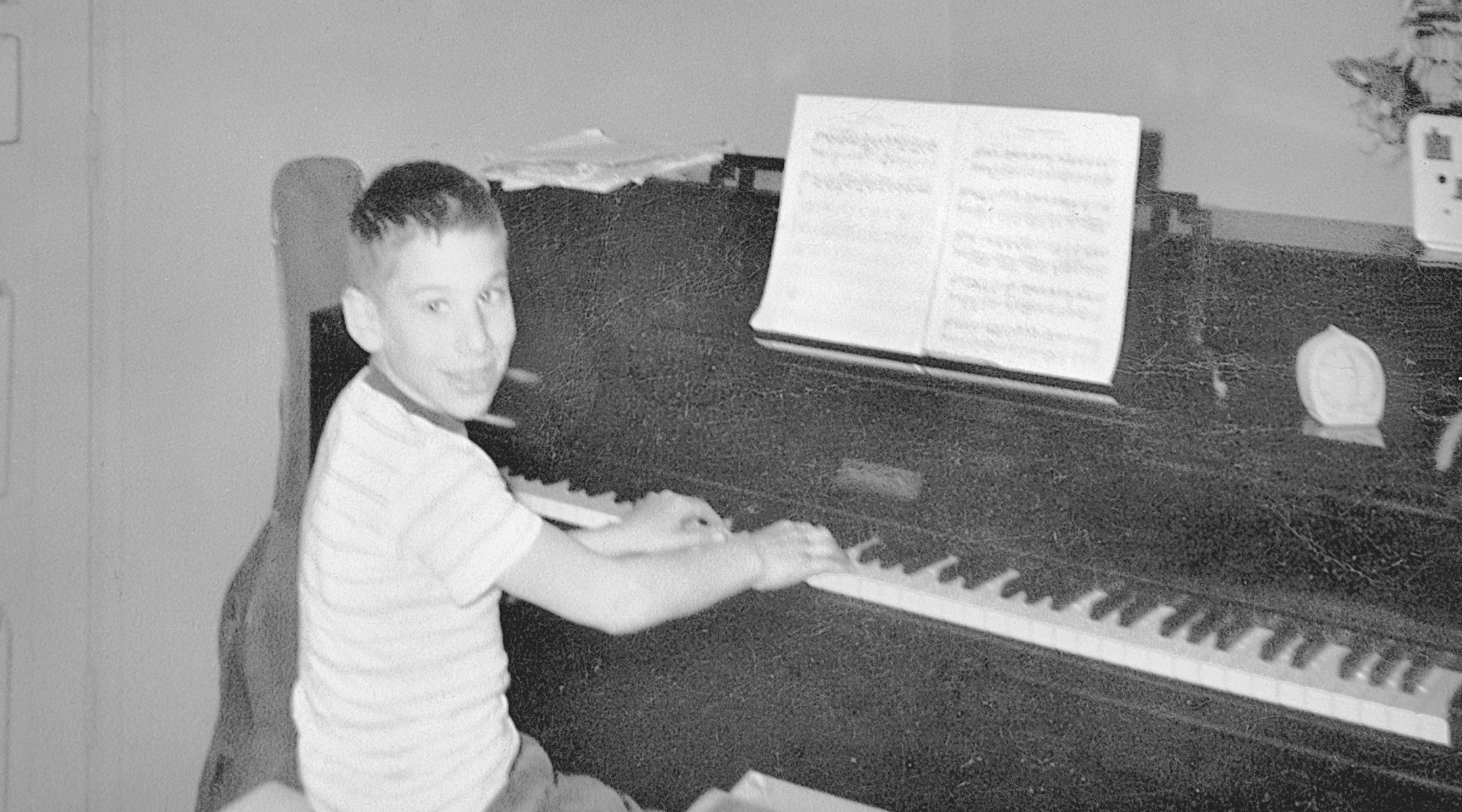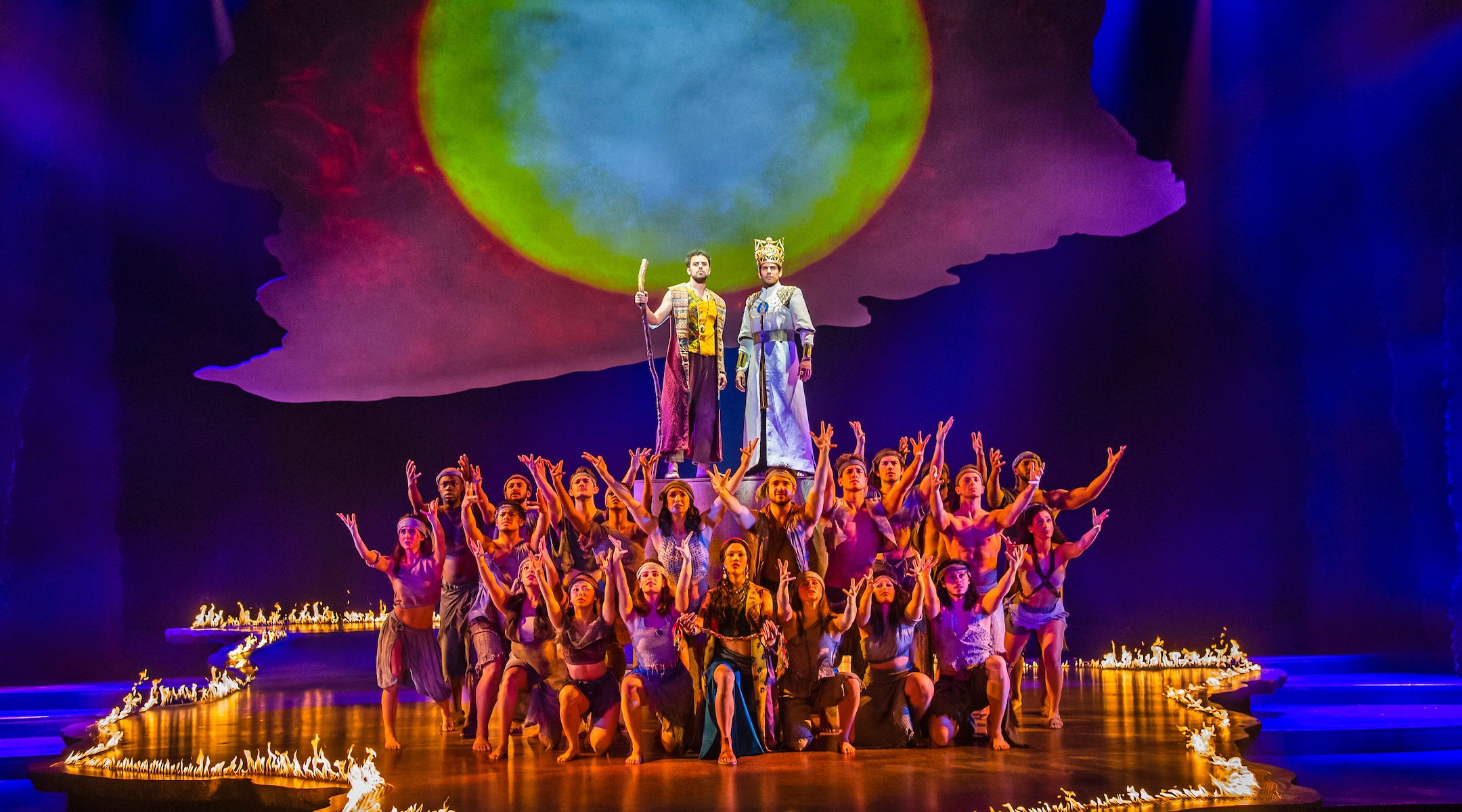(JTA) — “The Prince of Egypt” is having another moment in the desert sun.
The 1998 animated film on Moses and the Exodus story has been turned into a recent musical in London. It’s streaming on Hulu. And in the wake of the coronavirus crisis, the original movie’s music is getting online love from fans who are being soothed by soundtrack tunes such as “When You Believe,” which won an Oscar.
“Hearing this amid the Covid-19 virus situation just comforts me,” one listener wrote on the song’s YouTube page.
“You made me cry from joy; this is what we need to hear right now. Italy thanks you!” another comment read.
“This song fills my heart so deeply in these times, and gives me strength,” a young fan said.
The song’s prolific composer and lyricist, Stephen Schwartz, was moved by the remarks. He’s written music for a range of other blockbusters, from “Wicked” to “Pocahantas.”
“This is the most gratifying thing a writer can hear,” he said. “We write to communicate, to share our feelings and philosophies with the world.
“A lot of times you put stuff out there and don’t know how it’s being received. So if people have found something inspiring or comforting, there’s just no greater gift a writer can ask for.”
For “The Prince of Egypt” musical, Schwartz over the past five years has written 10 new songs that tell the Passover story. The play was at the beginning of a West End run when the pandemic forced it and all the other shows to close for now. An original cast recording of the songs was released shortly before Passover on Ghostlight Records.

Stephen Schwartz has won multiple Grammy and Academy Awards. (Nathan Johnson)
Schwartz, 72, said he’s been “very aware of the dramatic implications” of the Exodus saga since early childhood.
Born in New York City, he and his sister were raised on suburban Long Island by their businessman father Stanley, who will turn 100 in June, and their mother Sheila, a teacher who’s now 95.
“We always celebrated Passover and continue to with my parents every year,” Schwartz said. “When my children Scott and Jessica were young, my father wanted to make the story more interesting for them, so he invented two characters named Charlie and Susie, who were stand-ins for them. They appeared in the Passover story, assisting Moses, and that went on for six or seven years when they were little.”
Schwartz has been creating memorable music since his college days. While still in his early 20s, he had two massive hits on Broadway: “Godspell” and “Pippin,” which ran for nearly five years and 2,000 performances.
He worked consistently throughout the 1970s and ’80s, creating lyrics and/or music for various productions, including “Rags,” about Jewish immigrants in the “shmatta business” (also known as the garment industry).
By the 1990s, Schwartz was collaborating with Alan Menken on scores for Disney movies such as “Pocahontas,” for which he received two Academy Awards, and “The Hunchback of Notre Dame.”
In 1998, he wrote five songs for “The Prince of Egypt,” the first animated feature produced by Steven Spielberg and Jeffrey Katzenberg’s DreamWorks studio.
“I have to say,” Schwartz recalled, “when they first approached me about doing an animated feature, I didn’t really see it, until Spielberg said the idea he had was to emphasize the relationship between the two [adoptive] brothers [Moses and Rameses, who became Pharaoh]. That really appealed to me, because I like to do stories where real human relationships are caught up in big events.”
Schwartz’s 1991 musical “Children of Eden” was actually his original interpretation of the book of Genesis. While it didn’t run on Broadway, it has become one of the most frequently licensed pieces of theater around the world.
He also wrote the lyrics to the 2012 choral piece “The Chanukah Song – We Are Lights.”
“A friend of mine was directing a performance of Christmas songs at the Lincoln Center tree lighting and wanted to do a Hanukkah song as well,” he said. “I was very pleased to get an opportunity to contribute a Hanukkah song because I feel there aren’t nearly enough of them.”
Schwartz’s place in the pantheon of legendary Broadway and film composers was well established before the 21st century, but he’s perhaps best known for “Wicked.” Some 60 million theater-goers worldwide have seen the clever Broadway musical take on “The Wizard of Oz,” which has grossed $5 billion.
He often hears from fans who tell him the show’s song “Defying Gravity” has changed their lives.
“All of us who worked on ‘Wicked’ are astonished by what’s happened,” Schwartz said. “Obviously we were passionate about the idea and tried to do the best show we possibly could, but for it to have become such a cultural phenomenon was completely beyond our expectations.”

Stephen Schwartz at the piano at age 7. (Courtesy of Schwartz)
Schwartz’s parents and grandparents were all born in America, but his Jewish roots date back to the Austro-Hungarian Empire, and many ancestors were from Vienna as well. While working in the Austrian capital, with the help of the Jewish museum there, he found records about relatives from both sides.
Now Schwartz is looking forward to the expected release next year of the film version of “Wicked” and the presumed reopening in London of “The Prince of Egypt,” of which he’s quite proud.
“It was a very exciting experience theatrically, extremely imaginative, with athletic choreography,” he said.
JTA has documented Jewish history in real-time for over a century. Keep our journalism strong by joining us in supporting independent, award-winning reporting.






